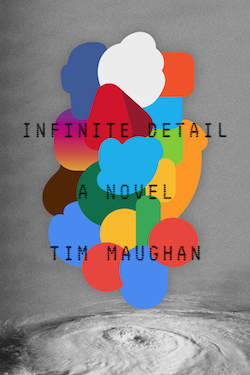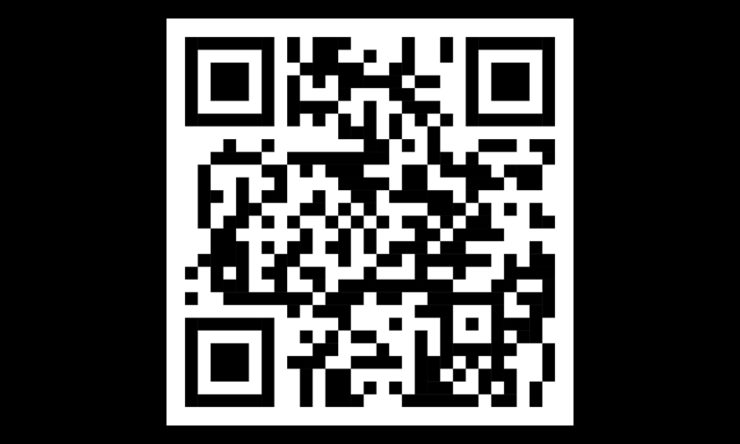Something quite odd happened to me. I experienced, for the first time, the odd sensation of having something you dreamed up for a story happen in real life.
In 2011 I wrote a short story called “Paintwork” (reprinted here on Tor.com) about augmented reality graffiti. In it the main protagonist, a young artist called 3Cube, replaces the QR codes on corporate advertising billboards so that wearers of augmented reality glasses (known as spex) are lead to their artwork instead of the advertisers message. It was a fairly simple idea, based on seeing how artists and vandals in my home town of Bristol abuse the ubiquitous billboards that line our streets. I had some really nice feedback about the story, and I was pretty happy with it—people seemed to like it, and at the beginning of the year myself and some friends even made a short based on the opening scene and this particular concept.
Fast forward a few years, and I saw this article over on The Guardian from 2013 explaining how a security company had discovered an exploit for Google Glass that allows personal data to be intercepted. Apparently Glass can access the ‘net via a link with an Android smartphone, and this is set up by looking at a QR code that your phone displays. Researchers were then able to create a QR code that instead of pairing Glass with the phone, sent it off to join another network entirely—one they’d created—so that they could listen in on the data that was being sent—and in the case of Glass, that’s usually pretty personal stuff like photos, videos, and messages.
Pretty close to the set up I had in my story, spoofing a wearable computer with a fake QR code link. In fact the Glass exploit is quite a bit nastier than the one I made up; in my story users have to consciously scan (or ‘blink’) the codes in order to access what they link to, whether that’s legitimate data or not. But apparently Glass by default scans every image it sees looking for QR codes, meaning that the exploit could be triggered by just having the illicit code within eyeshot, and without the user being in the slightest bit aware.
Now obviously Google released a patch that shuts this exploit down. So in a sense there’s probably very little chance of the events in “Paintwork” ever occurring as described—but of course that’s not the point. Like any sensible science fiction writer I’m not in the business of trying to make accurate predictions—it’s not only impossible, but also largely pointless, and something better suited to futurists, scientists, and engineers.
Buy the Book


Infinite Detail
What is interesting though is using imagined futures to explore aspects of our present—which is why the QR code part of this story has intrigued me so much. When I first wrote “Paintwork” QR codes were still relatively new tech in the west—they’d had a longer period of popularity in Japan and Korea, where phones with ‘net access have been common for well over a decade, but you weren’t really seeing them much here—well not in the UK at least. By the time the story was published it looked like they were already on the decline—many people just didn’t understand them or found them aesthetically ugly, other image recognition technologies were emerging that were making them obsolete, and most importantly they had been identified by many researchers as being very open to exactly this kind of exploitation.
So, in one sense, “Paintwork” was dated as soon as it came out. Not that it bothered me at all, in fact I have a perhaps rather odd attitude to my work dating—I’m quite happy to see it happen. Like I said, I’ve no interest in making accurate predictions about the future, my focus is the present—and as such I’ve no issue with being ‘dated’ in the most literal sense. In fact I find the idea quite exciting that someone might accidentally pick up something of mine in 50 years and be able to tell to almost the exact year when it was written based on the cultural references it contains, or the technology it describes, or the social issues it concerns itself with. If you think about it, we all do that when we pick up science fiction from the past—I’d hate to compare myself with Golden Age writers, but pick up the likes of Asimov or Bradbury now and you’ll see all kinds of technological ideas that never materialized but that reflect the issues of the time—atomic cars after the birth of the nuclear age, faceless worker robots as we moved into automated manufacturing. These ideas might make the stories seem dated, but in fact they illustrate how well they summed up the fears and concerns of the time they were written, and make them interesting and important historical documents. If that’s being dated then I’m happy to join the club.
Plus, I wasn’t really bothered about being dated on this issue because in one sense I was right—QR codes were going out of fashion because they were easily exploited, just like I had guessed.
Except the interesting, and slightly confusing thing to my mind, is that QR codes didn’t actually go out of fashion fully. Since “Paintwork” was originally released in 2011 we’ve seen an explosion in their use—grab the nearest piece of branding and packaging near you right now and there’s a fairly high chance you’ll see those increasingly ubiquitous black and white pixels on there somewhere. I guess what it proves is that the future—even on the smallest scale—really can’t be predicted, charted or forecast. But that’s not to say we shouldn’t try. It’s fun for a start, plus it’s what we, as both SF writers and readers, do. And by doing so we might just learn something useful about the present.
Now, where did I put that unfinished story from two years ago about the US whistleblower living on an abandoned oil rig in international waters…
Originally published in July 2013.
Tim Maughan is an author, a journalist, and a features writer who uses both fiction and nonfiction to explore issues around cities, class, culture, globalization, technology, and the future. His work regularly appears on the BBC and in Vice and New Scientist. His novel Infinite Detail is available from MCD x FSG Originals.










